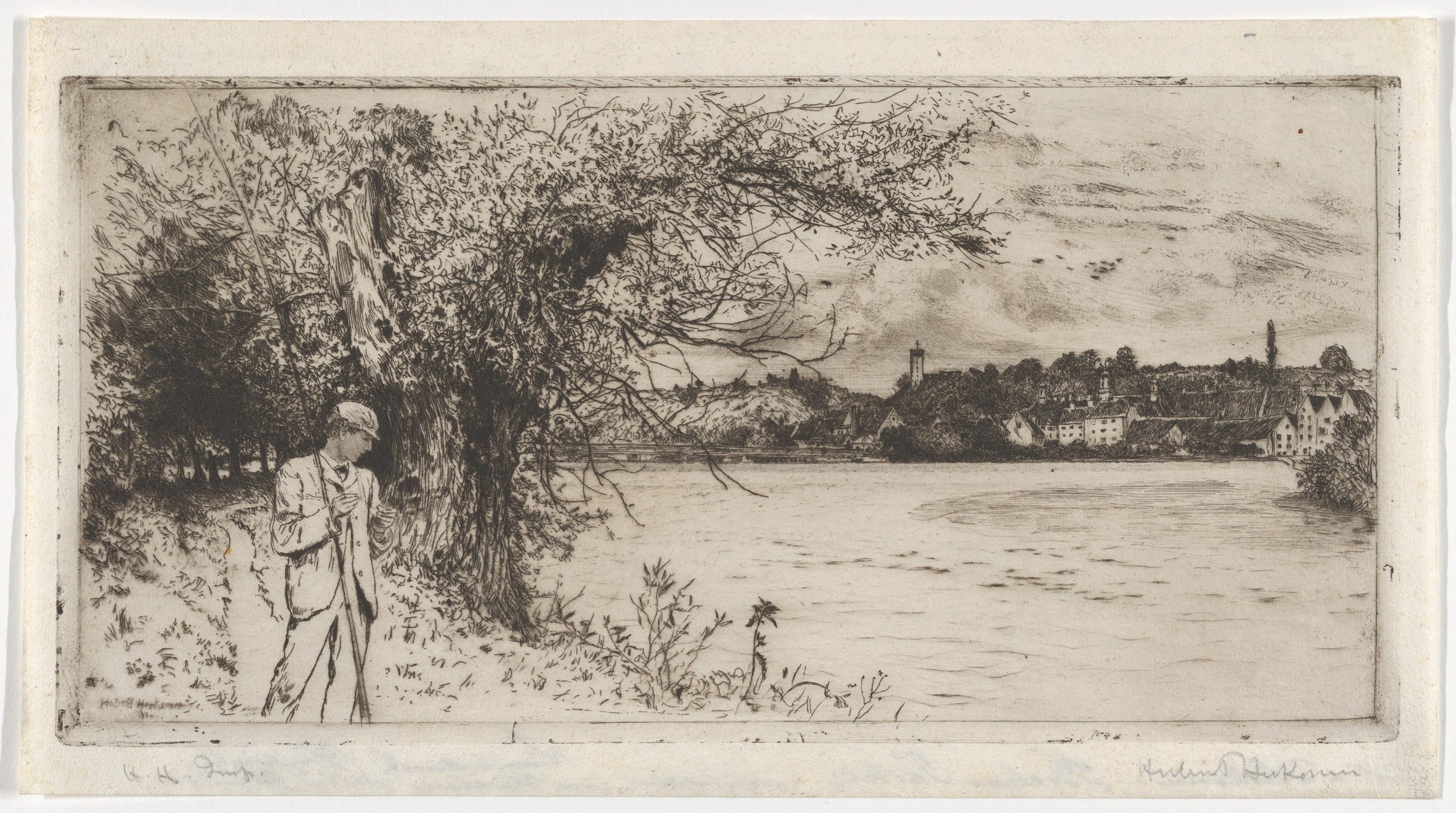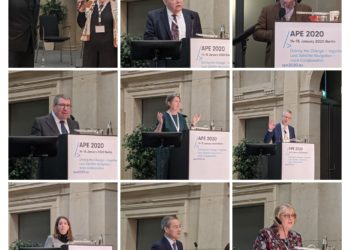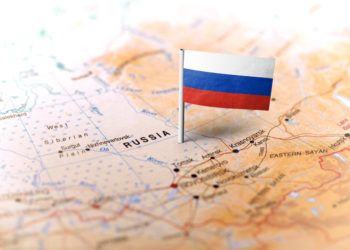The past week has seen a sudden and serious decoupling of the West from Russia as a result of Russia’s invasion of Ukraine. Across multiple sectors – political, financial, technical, and commercial – swift actions were taken to terminate partnerships with Russian organizations and cease collaborative projects. Sharp statements of rebuke accompanied the severing of ties, with no suggestion that compromise would be considered. A new Cold War atmosphere took hold in Europe with shocking suddenness, accompanied by a hope that military conflict does not spread any further. Today, we discuss this decoupling in the contexts of research collaboration, scientific exchange, and scholarly communication.

Global Science and Soft Power
Until very recently, the default science policy for many of the world’s democracies has been one of scientific openness and global cooperation. While this has been tested by developments in recent years, openness has continued to be the basic principle, as one of us (Roger) wrote about recently.
Partnerships, shared programs, expert exchanges, and the like are considered “soft power” tools of diplomacy and foreign policy. Soft power approaches seek to influence and persuade through pursuit of mutual interests and opportunities for social, cultural, and political exchange. Soft power approaches are often contrasted with “hard power” approaches, which seek to coerce through force, threats, and sanctions.
In recent years, there has been some pressure arising against scientific openness, mostly as a result of concerns among the democracies about a lack of reciprocity from China. These concerns accelerated during the pandemic, accompanied by efforts to address economic interdependence through greater supply chain resilience and other measures. But the default baseline policy has remained one characterized by international partnerships, scientific openness, and global scholarly communication.
Scientific Decoupling
In light of historical precedent, the speed at which scientific decoupling from Russia has emerged is notable and surprising. Of course, this comes in the context of sanctions against Russian leaders and elites, efforts to close the global banking system to Russia, restrictions on Russian airlines, and the provision of lethal aid to Ukraine among other actions. Early indicators suggest that at least some western countries, particularly Germany, are moving quickly for scientific decoupling as well.
On the day that Russia invaded Ukraine, the German government directed universities to freeze scientific relations with Russia. The next day the Allianz der Wissenschaftsorganisationen (Alliance of Science Organizations) issued a statement of support for the government directive, saying that “it is recommended that scientific cooperation with state institutions and commercial enterprises in Russia be frozen with immediate effect until further notice, that German research funds no longer benefit Russia, and that no joint scientific and research policy events take place. New cooperation projects should not be initiated at present” (English translation by DeepL). The Deutsche Forschungsgemeinschaft (DFG, German Research Foundation), which has a long-standing relationship with Russia, including a collaborative program with the Russian Science Foundation and an office in Moscow, is a member of the alliance. Yesterday, Denmark’s Ministry of Education and Research has issued a similar recommendation to end research collaborations with both Russia and Belarus.
The day after the invasion, MIT terminated a decade-old partnership with Russia’s Skolkovo Institute of Science and Technology “in light of the unacceptable military actions against Ukraine by the Russian government.” MIT contributed to the founding of the university and has assisted with recruitment, scholarly exchanges, and collaborative research projects.
Germany is also pressuring the European Union to cut scientific ties with Russia and for member states to do the same. Christian Ehler, German member of the European Parliament, has called for the termination of the science and technology cooperation agreement between the European Community and the Government of the Russian Federation and related activities; ending of payments to Russian participants in Horizon 2020 and terminating the participation of Russian entities in the program; and termination of the Russian Federation in any international scientific or research project of which the Union or Member States are part, including ITER and CERN, among other demands.
Questions are also arising about potential impacts on specific international collaborations. As one example, the European Space Agency is monitoring the International Space Station collaboration and NASA is preparing contingency plans for a possible Russian pull-out. There is a very personal element to this project as astronauts and cosmonauts from multiple countries, including Russia and Germany, are living on station and must work together closely, just as was the case during the tensions when Russia annexed Crimea. Related, responding to EU sanctions, Russia has announced withdrawal of its personnel and halting cooperation with Europe on Soyuz launches from French Guiana and the European Space Agency says that ExoMars is now “very unlikely” to launch this year.
Another area of collaboration at risk of fraying is the research portfolio of the Arctic nations and the implications for climate change research. In an interview with the CBC, Robert Huebert, an associate professor at the University of Calgary, explained: “A lot of our understanding of climate change comes from the co-operative sharing of information and science with the Russians within the context of the Arctic Council.” In addition, Huebert continued, “We have search and rescue treaties. We have a whole host of very meaningful steps. Those, I’m afraid, are all either going to be frozen or rendered irrelevant.”
Implications for Scholarly Communication
As scientific and research collaborations with Russia begin to freeze, there will be implications for scholarly communication. Scientific publishing has globalized substantially in recent decades, the natural product of underlying principles of scientific openness in combination with digital and network technologies for information distribution. The largest players operate distributed multinational corporations. Nonetheless, it is hard to see long-term stability in the idea that a scholarly manuscript produced in one part of the world should be readable — and often freely so — by scholars in adversary nations, let alone those working in military or dual-use fields. Geowalling proposals have been floated before to address lack of reciprocity in openness and would potentially take on new attractiveness in the kind of Cold War climate that has emerged. If decoupling takes hold more deeply, impacts on the scholarly communication system are inevitable.
In this time of fast-paced renunciations of value systems and principles that had seemed enduring, we are tracking a number of issues of strategic importance to scholarly communication and publishing:
- Will western publishers and service providers give in to pressure to de-platform Russian scholars and divest themselves of Russian publications?
- Will Russian editors and editorial board members be removed from their roles?
- Will western scholars withhold their manuscripts and labor from Russian publications?
- Will individual researchers heed the direct appeal from National Research Foundation of Ukraine for “immediate severance of all your ties with Russian scientific structures”?
- Will western publications, especially on sensitive and dual-use topics, continue to be made widely available online, including through open access?
- Will industry partnerships among western and Russian publishers, such as the collaboration between Pleiades Publishing and Springer Nature, whose corporate headquarters are in Berlin, be preserved?
- Will rankings and other recognition and rewards schemes be adjusted to de-prioritize or remove Russian institutions and scholars?
- How will payments from Russian universities to publishers for subscriptions and/or APCs be effected in light of the financial decoupling that has occurred, including, for example, the removal of Russia from SWIFT? If Russian institutions are unable to pay for resources and services, will publishers stop providing access to content and reject manuscripts for lack of APCs — or will they elect to provide access to publications and publishing services without charge?
- And, how will economic and other governmental sanctions impact on the decisions publishers are able to make? In past cases of US sanctions against Iran, Elsevier put in place guidance about who could handle certain manuscripts and PLOS wrote off unpaid invoices.
Finally, we note that many of these questions will be answered not only by publisher policy but also, in some cases, by editors and editorial boards implementing their own practices for specific journals. This has already happened with Elsevier’s Journal of Molecular Structure, with the editor in chief explaining the rejection of a manuscript with an author from a Russian institution saying that “this is not a general policy of Elsevier.” An Elsevier representative confirmed that “At this time, we don’t have restrictions on accepting submissions for papers that include Russian authors.”
Similar questions might be asked about libraries and how they will approach Russian publications. Will western libraries choose to continue to collect Russian materials and subscribe to Russian journals? Will Russia and/or western powers allow them to do so? Will existing staff exchanges and organizational collaborations continue? And, what about APC payments to or the inclusion of Russian journals in transformative agreements in light of the barriers now existing to making payments to Russian publishers?
Finally, might decoupling somehow place greater pressure on Sci-Hub, which is domiciled in Russia? There are scenarios in which greater Internet controls are put into place, with corollary impacts on Sci-Hub, but little evidence so far to suggest this will take place. Additionally, one might also wonder if there will be any greater individual qualms about using a service that has been said to have connections with Russian intelligence services?
Questioning Decoupling
As mentioned above, the scientific decoupling we are seeing currently is notable and somewhat surprising. It is also a cause for some concern. Scientific diplomacy is a long-standing soft power element of foreign policy. Even in times of significant conflict, scientific exchange has continued apace, a kind of silent back channel buoyed by commitment to the pursuit of knowledge and the common good, that facilitates the re-establishment of relationships post-conflict.
Some are publicly questioning the strategy of cutting off scientific relations with researchers and institutions. For example, Kurt Deketelaere, secretary general of the League of European Research Universities, is quoted as saying he has “No idea why we would punish innocent universities and academics for the stupid acts of their government.” This sentiment of concern for harm to individual researchers and scholarly institutions is echoed by many and is mentioned as a foreseen impact even by those who are cutting ties.
Ehler himself acknowledged that the decision to decouple is a serious one. He concludes his demand that the European Union sever ties with the statement that “cutting all scientific and research ties should be the very last resort in international conflict.”
Future Prospects for Scientific Diplomacy
The hope of these decouplings is presumably that these actions have an effect on the immediate course of events, which might allow for a return to more collegial relationships in the future. But, there is also, sadly, a possibility that decoupling continues and deepens for the long term.
Russia’s behavior has overtaken forecasts. And, it is certainly outside our competency to fully forecast what the coming days and weeks may bring. Regardless, there is a strong likelihood that relations between Russia and the West will take years, if not decades, to recover. Some observers are talking about a wait for regime change in Russia, which could be a very long wait indeed. In the perhaps less likely scenario that Russia reforms quickly, re-establishing trust, partnerships, and investments is a longer road to travel.
Until now, scholars have felt relatively confident that scientific openness would prevail even in times of great conflict and that collaborative relationships would be prized such that they would be rewarded for creating and maintaining them. Individual researchers’ willingness to invest time and effort into future collaborations may be limited by having seen them upended by this current decoupling that has disrupted their work or even brought to a complete halt.
Similarly, up until now, publishers have invested with the expectation of global reach and commensurate returns. Wiley’s acquisition of Hindawi surprised some observers precisely because of Hindawi’s substantial revenue dependency on China. Seeing how quickly a freeze can begin to fall over global science, we may wonder if valuations of such investments will be discounted for geopolitical risk any differently in the future.
And, indeed, the decoupling from Russia will raise questions about other potential decouplings. Though Deketelaere observed that “We did not stop cooperation with China when they, against all rules and agreements, reintegrated Hong Kong, or when they continue to violate Taiwan’s airspace,” it is not hard to imagine that – now that the tide has turned from past practice of maintaining scientific openness – scientific decoupling could become a more common strategy.
Discussion
24 Thoughts on "Decoupling from Russia"
On scholarly decoupling from Russia, bear in mind:
“Editorial decisions should not be affected by the origins of the manuscript, including the nationality, ethnicity, political beliefs, race, or religion of the authors. Decisions to edit and publish should not be determined by the policies of governments or other agencies outside of the journal itself.”
This is a COPE and WAME position:
https://publicationethics.org/news/clarification-cope-advice-editors-geopolitical-intrusions-editorial-decisions
https://wame.org/geopolitical-intrusion-on-editorial-decisions
On access to articles, Nature journalist Richard Van Noorden raised the surprising anti-open access stance on Twitter: https://twitter.com/Richvn/status/1498987291762638853. As noted in the replies, if you wish to keep information from certain countries then keeping it unpublished and classified is the only effective measure. It would be trivial for state agencies to work around geoblocking. Previous and existing international sanctions, e.g. against Iran, have never involved blocking access to scholarly literature.
Declaration: I am on COPE Council. I was a Hindawi employee until last month.
I was a bit surprised that Richard took that passage as some sort of endorsement of geo-walling. To me it reads as a cautionary warning, something we should look out for, and also an acknowledgement that research is an activity with deep ties to political regimes, and that nationalist ideas around access to research do continue to be raised (and often from unexpected sources).
FWIW, this got clarified. In fairness to Richard, let me include this example since it is a branching thread and might not be seen: “Yes. I now understand that the authors didn’t intend this as a normative statement, but rather projecting how things might unfold, with no normative viewpoint.” (https://twitter.com/Richvn/status/1499009114587942914)
Matt, to come back to the other part of your comment. Given the case we mention, would you say that at least one editor/journal is in violation of COPE/WAME then? Does COPE issue sanctions or something then? How are deviations from the “should” handled?
Thanks for clarifying on the access issue, Lisa, I did find the wording confusing.
Journal of Molecular Structure is a COPE member. However, Elsevier as its publisher needs to follow internal processes before COPE would become involved. The Facilitation and Integrity subcommittee oversees any such concerns, see https://publicationethics.org/facilitation-and-integrity-subcommittee. Sanctions are a last resort for when there is “flagrant or consistent unwillingness to abide by COPE principles”. https://publicationethics.org/cope-sanctions-process-flowchart
I have no qualms about using sci hub. It has never been alleged that there is a security risk for sci hub users – only that sci hub may obtain credentials via dubious means and the suggestion that they *could* use that access to get more (but who knows if they do).
Downloading from sci hub has no economic or military effects on Russia. They cannot use their download statistics to fire missiles.
I’ve read those pieces. What they tell me is that you should not give your credentials to sci hub and try to avoid phishing. Definitely don’t make a donation.
What would deter me from using sci hub is evidence that keyloggers or malware are installed just by visiting and downloading. This has been suggested but no evidence presented (“traffic flows both ways”, OK, but what malware was installed?). There hasn’t been word that sci hub sends crypto mining scripts (something that other shady websites have been known to do). They don’t even display ads.
I can’t see how downloading alone supports them or Russian intelligence. There’s no additional IP loss or revenue for them. If there is evidence that downloading alone can result in malware infection, crypto mining, or advertising revenue it will be trivial to show me the evidence. I will then change my mind.
You need to do more research. There has been much written about the dangers of Sci-Hub stealing YOUR credentials and then using them to steal intellectual property from your organisation. Also, think about what the aim of Sci-Hub is and how, by using it, you are supporting it. The FBI have opened two investigations because it has been alleged that Sci-Hub is stealing secrets. Look at the articles recently about the stealing of the Oxford Vaccine (https://www.theguardian.com/world/2020/jul/17/russian-hackers-steal-coronavirus-vaccine-uk-minister-cyber-attack) I have evidence of a massive increase in theft by Sci-Hub from medical facilities staring Feb 2020. The links to the GRU have been written about in many major newspapers globally. Think about what the GRU is now doing in Ukraine and then go and download some more stolen articles from the Russian backed Sci-Hub! Maybe the missile technology they’re using was stolen via Sci-Hub from western research?
Many UK Universities have now blocked access to Sci-Hub because of the dangers of using it. They would not do this without evidence
The devaluation of the ruble, as well as the self imposed restrictions currency export, should have a profound impact on the ability of Russian consortia and institutions to pay for their 2022 subscribed access or Open Access R&P deals.
Could you expand on the assertion that “it is hard to see long-term stability in the idea that a scholarly manuscript produced in one part of the world should be readable — and often freely so — by scholars in adversary nations, let alone those working in military or dual-use fields”? Is the concern here that the West will continue to publish in OA but Russia will stop doing so, meaning Russian researchers will continue to be able to read our research but we will no longer be able to read their latest research because sanctions prevent us from purchasing and licensing things from Russian publishers? If so, I find it hard to imagine the Russian government bothering to outlaw OA publishing within its borders.
As for military and dual-use fields, my sense is that sensitive research has never been openly published due to legal restrictions, so the current situation hasn’t changed that.
Hi Kevin, Advances in fields such as material science, robotics, and artificial intelligence have substantial dual-use potential. In most democracies, at least, these fields nevertheless practice scientific openness (in terms of publishing their findings etc) to a very substantial degree.
Even beyond fields with dual-use potential, some observers have expressed concerns about the massive investments, for example from the US and EU, in basic science that supports economic innovation, without reciprocity in investment from other major economies, such as China. There are also substantial concerns from US policymakers about reciprocity in openness, specifically with China, as a result. Given the substantial economic sanctions being put in place against Russia in recent days, we may not be prepared to forecast any moves to close off US/EU research to Russia but are mindful of the critiques that could lead some policy makers in that direction.
We do not have a particular argument about OA in this context, just an observation that there may be a variety of policy making forces pushing against scientific collaboration and openness. Indeed we are already seeing that happen at a stunning pace.
Thank you for this excellent current analysis and historical perspective. I think it is also important to stress that Western academic partnerships with Ukrainian researchers has already intensified. As one example, a program at the Goethe Universität at Frankfurt am Main has already (!) formulized their offer of five scholarships at 3000 € per month each to displaced Ukrainian historians. See https://www.geschichte.uni-frankfurt.de/92594738/Polycentricity_and_Plurality_of_Premodern_Christianities__POLY?legacy_request=1. Many more such positions and forms of academic support coupled with financial relief are likely in the works.
Thanks Mark. Yes, that’s a great point that there are growing efforts to engage Ukrainian researchers and to a degree Ukraine’s research sector as well. We decided we had enough on our plate focusing on the Russia decoupling, but the prospect of strengthened research relations with Ukraine is also of great importance.
There is a historical precedent here. As WWI and the influenza pandemic subsided, the Royal Society convened the “London Conference” that considered a post-war boycott of German scientists. It was proposed that German scientists be denied participation in the activities of international scientific societies. The UK geneticist, William Bateson, was strongly opposed to this.
I think he would have agreed with Ehler that “cutting all scientific and research ties should be the very last resort in international conflict.” However, I think Bateson would also have recognized the uniqueness of the present situation. A psychopath with his finger on the nuclear button is being cornered. Most Russian scientists, I suspect, opposed him. But, some undoubtedly support him. These are the people who might be influenced by a short, sharp, boycott. For more see the chapter on Science and Chauvinism in our Bateson biography (2008).
both opposing and supporting scientists will certainly be influenced by a boycott, but it’s unclear if the manifested influence will match the (presumably) desired influence.
my concern is that the supporting scientists will hardly be swayed by a boycott; in fact severing all ties is more likely to reinforce their positive sentiment towards the government and state. meanwhile, severing all ties with the international scientific community may compel the opposing scientists to muffle their opposition (or even genuinely change their mind) as means of self-preservation. and ultimately this results in nothing but further alienization and isolation of Russian people — which seems to be precisely what Russia is going for in the long-term.
so i don’t know, this swift decoupling just strikes me as bad/rushed diplomacy.
A group of international colleagues (including me) serve on a committe that’s documenting educational aspects of media literacy. This morning our Russian academic colleague told us he must step back from this work, because participation in projects with the west is now unsafe. This may be the biggest damper on collaboration at this time.
Excellent post as usual Lisa, Roger. Thank you. I suggest that what we’re really seeing exposed at the moment is the decades-long lack of foresight and strategy that already existed in the open science movement. Where exactly were/are we going with open science? What is our end goal? What are the practical, real-world implications of wide-open sharing? We’ve continually touted the possibility of faster discovery and improved equity, and that’s important, but at the same time we’ve given almost no serious attention to issues like IP theft and national security. These concerns have lurked under the surface for years but have never been given due consideration by open science policy makers.
Of course, the very foundations of research are built on openness and sharing, but this sharing has mostly been measured and on an as-needed basis (except for physicists and astronomers, who have always shared everything). The open science movement, on the other hand, is built (for the moment) on the premise that all open is necessarily good, and that more open is better. Beyond this philosophy, there has been no global discussion about what we’re actually trying to do with open, short of just making a lot of science more accessible and then come what may.
These recent tensions with China and Russia are bringing these pre-existing tensions to the fore. As this community tries to figure out our just and necessary responses to these tensions, there are going to be missteps and overreactions because these decisions are being made on the fly and without any community discussion or guidance. But at the end of the day, science has always had a default position of openness, and open science is an extension of this position. So for many, the question remains one of how—not whether—we can best continue to strive to improve the ability of researchers everywhere to work together for our common good.
This misunderstands how copyright works. If you publish your idea in an article — whether paywalled or open access — the IP in your idea is not protected by copyright and never has been. The way you chose to *express* the idea is protected. In fact, under the traditional publishing model (which you imply is better because it protects your IP), when you published your idea you probably transferred the copyright in your expression of your idea to the publisher anyway. So you owned neither the IP in the ideas nor the expression of them. In an open access journal you are more likely (depending on the agreement you sign) to retain copyright and only grant a licence to publish your work to the publisher.
If your work has security issues or commercial potential the first thing your research office will tell you is don’t tell anyone about it, regardless of where you were thinking of publishing it.
Hi all, There has been some discussion about the term “openness” both in the comments and on social media. I thought a definition of what is meant by Scientific Openness (which is not the same thing as open access or open science) might be helpful for some. See here: https://twitter.com/rschon/status/1499157026504683525
Regarding Kurt Deketelaere, secretary general of the League of European Research Universities, who is quoted as saying he has “No idea why we would punish innocent universities and academics for the stupid acts of their government,” I have this to say. If you think that way, then why should Russian athletes, their teams, and their organizations be punished? Why also should Russian artists and musicians and their art galleries and opera halls be punished? Why should the makers of caviar and Vodka be punished? Any idea why all of the presumably innocent people should be punished? After all, athletes train their entire lives to get the chance to compete at the international level. Artists and opera singers practice all their lives to reach international stature. It is not just we scientists who matter in this world. Right, it doesn’t seem fair, but to a lot of other people it’s also not fair, particularly it’s not fair for the Ukrainian scholars, athletes, and artists, many of whom are now serving their country by defending it with their blood. It also seemed unfair in 1980 to U.S. athletes who were unable to compete in the summer Olympic games, due to the U.S. Olympic boycott by Jimmy Carter for the Soviet’s invading Afghanistan. So in answer to Deketelaere’s comment/question, why should academics not be punished, if other groups are being punished? If one group is cut off from the world, why should other groups not be? The other factor to consider is that the scientists, athletes, and artists always represent their country, they represent the best of their nation. If they do well, achieve greatness, receive awards, win medals, they bring glory to their country. They do not operate in a vacuum, separate from their country. They are a product of their own nation’s best institutions, and so why should one group be allowed to represent their nation to the world at large while others are denied that? Sad as it is, the innocent people are and always will be punished for the actions of their governments. But if we want to talk about what’s fair and unfair, let’s not forget which people are on the receiving end of this invasion of Ukraine and who stand to lose not just their careers and livelihoods, but their very lives.
Against the backdrop of unfolding Russian war crimes in Ukraine and international sanctions, the issue of science diplomacy and research collaboration remains an international dilemma. The (limited) survey results mentioned in Science|Business today echo the voice of Russian researchers. The majority of Russian scientists estimate that the majority of the Russian academic community unambiguously condemn, publicly or privately, the ongoing invasion.
Striking in the survey is the high consensus to agree that ‘’Restrictions of international collaborations are targeting the wrong population and may be counterproductive in the long term’’. Striking is also the minority support (with some variation towards support) that ‘’It is a necessary ill to sanction Russian scientific institutions given the statement of the Rectors of Russian universities in support of the invasion’’.
Without any doubt, East and ‘’West’’ will need each other concerning global research in areas such as climate, poverty, energy and food security. Even during the Cold War (the USSR and the West continued to collaborate scientifically, though I add that the Cold War holds just limited parallels with the Ukraine crisis, let alone easy lessons. I would promote to apply scientific sanctions (funding, collaboration, publishing) only after careful assessment. Such assessment may include optimal avoidance of dual use research, continued research collaboration supporting the United Nations SDG’s, as well as assessment of Russian collaboration partners. Blanket coverage of sanctions against any Russian researcher groups or individuals may be avoided. The mentioned survey reminds us to listen to individual researchers and explore universal values and proved importance of science diplomacy in times of crisis.



